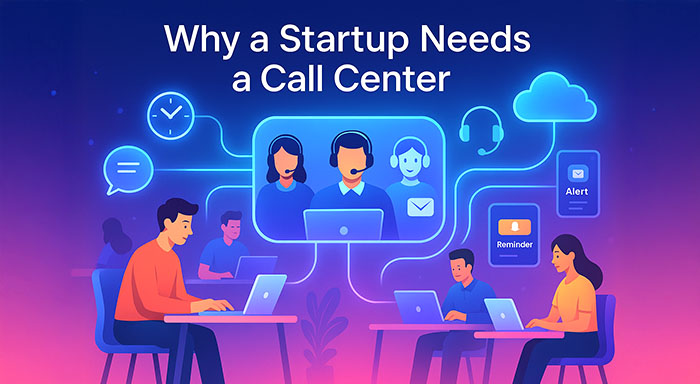Customer expectations are growing rapidly and that presents both an opportunity and a major challenge to startups. However, in this 24/7 world, that users are accustomed to, they need instant
Customer expectations are growing rapidly and that presents both an opportunity and a major challenge to startups. However, in this 24/7 world, that users are accustomed to, they need instant answers to questions, concerns, or feedback, any time of the day. That may be true, but constructing a year-round customer support machine sounds pretty pricey, especially for lean, young, and resource-strapped companies.
The good news? Delivering 24/7 service doesn’t need a Fortune 500 budget. You only need the appropriate strategy.
Why 24/7 Support Matters for Startups
Your product might be great, you're branding on point but if a customer hits a wall at midnight and can’t get help, they may never return. In SaaS, fintech, or e-commerce, and users across many time zones, having no support is a killer.
Having 24/7 support can be the difference between churn and loyalty, or a one-star review and a brand advocate.
When real-time responsiveness is a focus for a startup, it instills trust among customers quickly and leads to serious competitive advantage in a world where traditional players struggle to keep up.
Why a Startup Needs a Call Center

A call center is essential for startups because it builds early customer trust, ensures fast issue resolution, and supports scalable growth. It allows startups to offer professional, 24/7 support, gather valuable user feedback, and free up core teams to focus on product and strategy. By improving customer satisfaction and retention from the start, a call center becomes a smart investment, not just a support function. With the addition of a2p calling, startups can automate important outbound communications like order confirmations, reminders, or alerts enhancing customer experience while saving time.
Smart Ways to Offer 24/7 Support on a Budget
You do not have to hire a dedicated team at each time zone to make 24/7 support a reality. Here are smart, scalable strategies:
1. Start with Self-Service First
Develop a knowledge base, FAQ page, and video tutorials for round-the-clock access to your customers. Most users would rather self-diagnose, provided that the details are clear and easily accessible.
Tip: You can use something like Antlere, Help Docs, Intercom Articles, or Zendesk Guide to element your content and see what is working.
2. Automate Tier-1 Inquiries with AI Chatbots
In fact, most modern AI chatbots can deal with 70–80% of basic inquiries such as resetting a password, getting the status of an order, or explaining features. They're cost-effective and available 24/7.
Plus, you can even automate your bots to escalate to a human agent whenever necessary, hence keeping the human element while at the same time working efficiently.
3. Divide Small Teams Across Time Zones
If you have a small support team, you can consider providing flexible shifts or hiring freelancers from different regions to cover each and every one without getting burnout.
Though it’s not full global coverage, you can still extend support hours significantly without increasing headcount.
4. Collaborate with a Global Support Provider
When you’re ready to grow, outsourcing your support operations can help you go 24/7 immediately without the headache of recruiting, training, and managing internal staff.
A trustworthy BPO partner (Business Process Outsourcing) can yield trained agents, multilingual support, and growing infrastructure tailored to startups. Your support runs like clockwork so that you can stay focused on your growth.
Real-World Wins
By outsourcing their nighttime chat support, a fast-growing health tech startup was able to cut its ticket backlog by 35% and improve first-response time by 50% without increasing internal headcount.
On the other hand, a new-gen e-commerce brand created a hybrid support model with AI bots and human follow-ups. The result? Only three in-house employees and two outsourced agents were needed, which not only saved money but also expanded their reach to provide 24/7 service.
This is not a rare exception, these are smart, nimble businesses capitalizing on supportive models of scaling; providing world-class customer experience and remaining competitive.
Final Thoughts
Offering 24/7 support isn’t a luxury anymore, it’s a growth enabler. And for startups, the trick isn’t to spend more, it’s to spend smarter.
By combining automation, asynchronous tools, and strategic partnerships, even the smallest team can deliver world-class service, day or night.
In the end, customers don’t care if it’s 3 AM or 3 PM, they just want to feel heard. Give them that, and you’ll be ahead 90% of the competition.
Respond to this article with emojis






